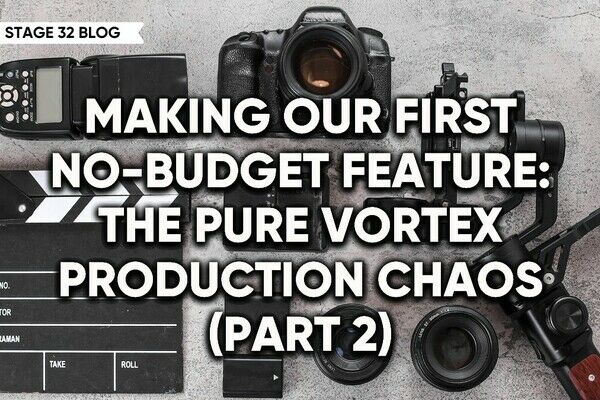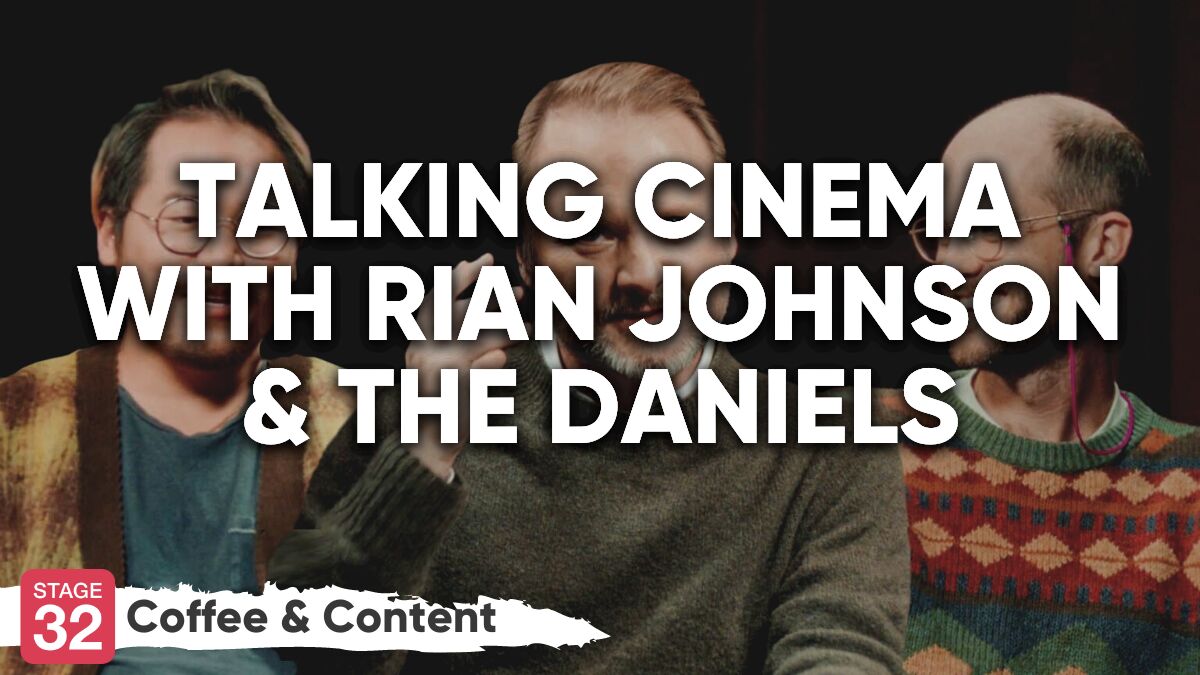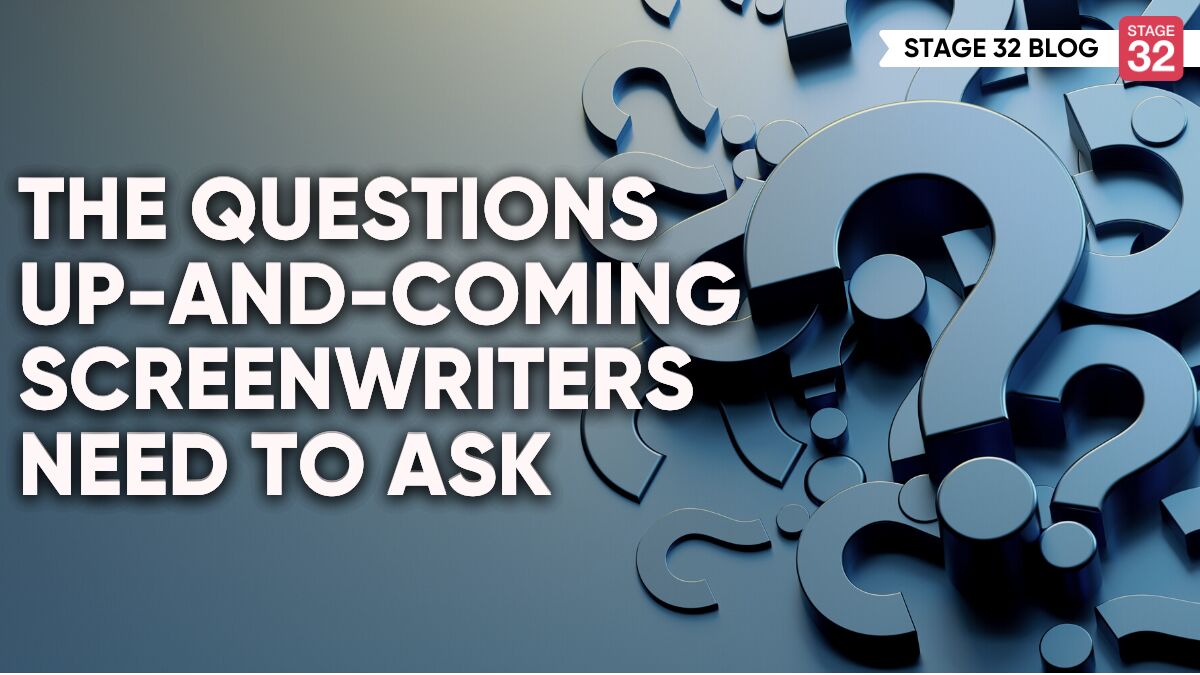How to Find Your Creative Voice - Part 2: Working with Your Voice
We’ve talked about activating, listening, and preserving our Voice as a path to personal success. But what exactly is our ‘Voice,’ and how do we work with it in more detail?
Your Voice is Not a Muse or a Brand
Wiki-how says, “Muses were goddesses to whom poets prayed for the gift of divine inspiration.”
No point in praying to your Voice. You’d just be praying to yourself. I’d suggest that great works of art are not our Voice either.
Art is a gift from our Voice, the product of our Voice, and our work may have a certain style or brand, but the brand is not our Voice. It’s bigger than that.

The Orchestra and the Conductor
The Voice speaks through our gut instinct, primal and primitive. It is intuitive and exists above the reason and logic of the mind. It is creativity, guided by inspiration, and capable of pure originality. It uses the mind as a tool to create art, like a symphony conductor directing an orchestra. The mind, with its many facets and thoughts, is like a group of musicians. In a symphony, musicians are essential, but they need to be kept together. Each is valuable and important to the whole, and yet they need to contribute to a single vision and expression under a great conductor. That’s the job of the Voice to conduct the orchestra of knowledge, skill, and craft within us into a creative vision.
What is the Voice? I’d say it was the deepest, most creative, and most trusted part of us that knows. It is capable of deep insights and creative inspiration and can lead us to new levels of artistic expression and personal success. But, it has been my experience that this happens in stages. The Voice is on its own journey as well, or at least our ability to tune in and listen to it is on its own journey.
Few of us exhibit genius by default. Our Voices need to be encouraged in order to be the best we can be. The Voice is not pushy or brash but rather quiet and subtle. We need to work with and encourage this aspect of ourselves by listening to and trusting it.
Trial and Error
When working on my play about King John and the signing of the Magna Carta (see previous blog post), I’d do a draft of a scene, let it sit for a few days, then re-read it to see if my gut instincts and my Voice were at peace or not. Invariably it was not. My Voice spoke like a primal ‘grunt’ if it wasn’t happy, expressing its displeasure, but beyond that, it wasn’t saying too much.
It occurred to me that instead of just waiting for the Voice to express displeasure, I could start working with my Voice more proactively and collaboratively. I decided to pose the question of “what was wrong with the story” and see what it might say.
Often I could reread a scene and figure out what was wrong and what was bothering me or my Voice about the story. I’d do another draft, and often the Voice was partially placated. We were making incremental progress. It still wasn’t totally happy, but it was happier than it was the time before. But as the revisions passed, the problems and issues with the story became less obvious, more subtle, and harder to identify. Sometimes the Voice was saying there was something wrong, but I had absolutely no idea what that was.

The Voice’s displeasure wasn’t always a reaction to a problem. Often, I believe it stemmed from some unrealized potential that I was missing. To paraphrase, my Voice seemed to be saying, “the work is good, but it could be better, so fix it.”
What do you do when you know there’s a problem, but you have no idea what it is or how to solve it? For writers, maybe it’s a scene or a section or a plot turn or a character. For actors, perhaps it’s a feeling we haven’t totally gotten to the truth of the character we are playing.
I decided to pose the question to my Voice. I asked it how to fix what was wrong with the story. The answer came swiftly:
“Experiment.”
“Experiment? With what? How?”
The Voice repeated, “experiment,” so I started to do just that. I started taking aspects of my story apart and putting them back together in new ways.
- I’d give dialogue from one character to another, and surprisingly, that actually helped, or
- I’d change who the events were happening to, the sequence of the events, or
- I’d start at the end and dive deeper, or
- I’d think about how the events in my story impacted other characters and then insert them into the action or bring out more of their points of view, or
- I’d juggle scenes, changing the sequence.
It opened up whole new windows of opportunity and lifted the work up to a much better place. Eventually, after many drafts, the Voice was at peace, and the play was finished and ready for submission. Each time your Voice speaks, the stronger and clearer its guidance and the better your work becomes. The cycle for revision does get shorter.
Don’t be discouraged; keep plugging. Working with your Voice is an act of pure creativity. It is our highest form of expression. We are learning to trust ourselves and our own instincts, with the goal being a personal success. We are, in effect, creating ourselves. We will know when our work has arrived at being the best it can be because we will feel whole and at peace, and I think that goes for anything you do, any profession.

Midnight Inspiration
Sometimes experimentation on the story wasn’t necessary or possible. Sometimes after hearing displeasure from my Voice and not knowing what was wrong, I would simply look at the work objectively without trying to find a solution or experimenting. I would just try and look at it from all sides objectively, and in a detached way, then I’d go to sleep.
I found that there is some kind of magical alchemy that occurs while we are asleep.
Often, effortlessly, the most beneficial answer from the Voice would rise like a bubble of pure, fresh air through the waters of the mind bobbing to the surface. I would awake in the morning or in the middle of the night, and the answer was just there. I knew what to do.
Other times, and often in the middle of the night, what bobbed to the surface was the Voice speaking. My characters, my story, and my creativity are speaking. Ideas are flowing from the deepest parts of ourselves. I was tempted to roll over and go back to sleep, assuring myself I would remember it all in the morning. I learned the hard way, on more than one occasion, that the only thing I will remember is that I wish I’d written it all down.
So don't wait. Get up and start writing, whatever it is. Keep writing as long as you can, as long as you can ride the crest of this creative wave as it rolls through from your Voice.
Try not to go back and read what you’ve written; you will be tempted to find out what gifts your Voice has brought. Don’t do it! Not in this session. You can do that in the morning. Right now, focus on not interrupting the flow. Relish this moment of pure inspiration wherever it leads. You can’t just turn it on again later. It’s a random act of inspiration and pure creativity, and very elusive. When our Voice speaks, we have to seize the moment, day or night. For me, midnight inspirations are as close to pure artistic revelation as I will ever get.

A couple of other points:
The Voice urges us to step out of the box of our logical mind and usual patterns and look at our work from different and often unique points of view. For me, it definitely benefited my story. Often the changes that calmed the Voice were not as extensive as I might have feared.
A moment of inspiration is timeless. Our Voice is always in the moment, that's where pure creativity lives, not in the past or the future where we so often dwell.
Plans are good but know when to let them go or change them. Have the flexibility and randomness to adjust your plans on the fly at the will of the Voice. We have to be that flexible.
You can still work with deadlines. Even though changing plans is an organic process, the Voice can still stick to a deadline. It just gets there using a more unique, original, and often unexpected path. But your business commitments can still be met. Let your Voice show you the way.
Aesthetics
For me, my Voice seems to be less concerned with craft (although it picks and chooses what it wants to use at the moment from our war chest of technique) and more concerned with the aesthetics like flow and sequence.
Flow, for me, is the seamless and organic transition from one idea to another, and sequence is the natural building of revelations toward an ultimate shift of consciousness in the characters. Sounds kind of highbrow, but at heart, I believe the Voice is more concerned with the pursuit of beauty than the execution of craft.
They are closely coupled, to be sure. You can’t really have one without the other, but the Voice as your conductor will ultimately, I believe, take your work beyond technique toward true artistic expression and revelation however you or It defines it.

Finally – the tools for your Voice
I would be remiss if I didn’t mention that finding our Voice doesn’t relieve us of the hard work of learning craft, rehearsing, studying, or rewriting. It’s learning and practicing the techniques so well that you don’t have to think about it. The principles and techniques should become almost intuitive to us. It enables our Voice to pick and choose what it needs at the moment.
I’ve also found that my study of craft, as explained by the great writing teachers, opens up a window of creativity into my work through which my Voice often speaks. So craft can be a tool chest, but it can also create a fresh and creative window to your work and to your Voice that should be explored.
If you are just starting with learning craft and working with your Voice, apply them both diligently. Occupy your mind with the concepts, principles, and application of craft in your chosen vocation, absorb it and practice it, then be open to following your unique Voice and creative expression.
The experience is about freedom, the freedom to dream and to experiment and take chances.
It’s about having the courage to trust yourself enough to take your dreams in a whole new direction beyond what you had originally intended or imagined.
It’s about finding ourselves through what we love to do, to become whole, by going to the point where our instincts, our gut feeling, and our Voice can guide us in harmony and peace.
Let's hear your thoughts in the comments below!
For more tips on strengthening your creative voice, check out this upcoming webinar from Emmy-winning TV producer Maria Baltazzi.
Got an idea for a post? Or have you collaborated with Stage 32 members to create a project? We'd love to hear about it. Email Emily at blog@stage32.com, and let's get your post published!
Please help support your fellow Stage 32ers by sharing this on social. Check out the social media buttons at the top to share on Instagram @stage32 Twitter @stage32 Facebook @stage32 and LinkedIn @stage-32
| Coffee & Content: Talking Cinema with Rian Johnson & The Daniels |
| The Questions Up-and-Coming Screenwriters Need to Ask |
Search Stage 32 Blog
There are now 4040 blog posts for you to enjoy. Search them all by tags below.
Acting, Advice, Cinematography, Coffee & Content, Composing, Contests, Distribution, Featured, Filmmaking, Financing, Inspirational, Networking, Producing, Screenwriting, Success Stories, Tips, Trending,Relevant Tags
Recommended Articles

Coffee & Content: Why Your Pitch Needs to Be Human

Stage 32 Certification Featured In IndieWire!

Find Your Footing on Stage 32: Join Our December Community Open House

7 Life Hacks For Creatives

Insider Intel: 2025- Your Year of Breakthroughs (+ What's Coming in 2026)

Don't Let the Momentum of November Write Club Die: How to Stay Active Into 2026 & Beyond!

Forbes Spotlights Stage 32 Certification!

How Modern Franchises Became Our New Religion

Insider Intel: The Studio War & The Rise of Indies






